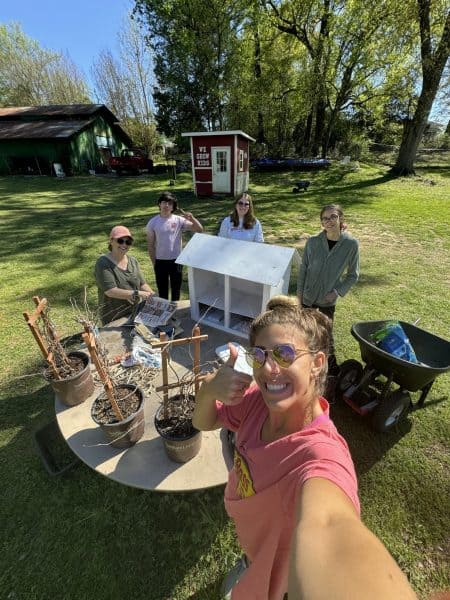Opinion | The time to study abroad is now
February 9, 2022
Studying abroad can be a daunting prospect. With so many variables to take into account, many students wonder if it’s even worth the time and energy. For me the answer was simple.
Even in the midst of a pandemic, I realized that my desire to go abroad had only grown throughout my time in lockdown. For college students wanting to study abroad, the chaos of COVID-19 has made that more difficult, but not impossible. There are hoops to jump through, like renewing your passport, getting a visa and a lot of COVID-19 testing, but for those who want an adventure, you can still get one.
While the process to get there can be long and frustrating at times, the opportunity to live in another country for a few months while in college is a once-in-a-lifetime chance.
If you have no idea where to go or what to study to stay on track for graduation, the University’s Education Abroad office is there to help. This one-stop shop for all things study abroad is located on the first floor of B.B. Comer Hall. Here, staff members will provide you with everything you need to know to go abroad and earn academic credit to transfer back to The University of Alabama.
When planning to study abroad, it is crucial to start the process about a year prior to your planned departure. Within the University, you have the opportunity to study abroad from a few weeks to a few months in various types of programs in hundreds of different places.
There are UA faculty-led programs, which typically take place over the summer; exchange programs with select universities; UA-affiliate programs and direct enrollment, which are the option that most students select; and lastly non-UA-affiliate programs, which are programs not vetted by, used by or affiliated with the University.
These nonaffiliate programs can be trickier, and it is up to the University to decide whether to accept the transfer credits and if you can apply your scholarships toward the program.
I decided upon a UA-affiliate program, CIEE, for multiple reasons. First, it was one of the only programs affiliated with the University that offered Paris as an education destination. Paris has always been a bucket-list city of mine. With its sprawling history, abundance of pastries and status as one of the fashion capitals of the world, I decided very early on that Paris was the place for me.
The program also offered the most classes that would transfer back to the University and count toward my degree. It came highly recommended by UA alumni and past CIEE students. It’s imperative to get information on the details and dynamics of the program you are interested in from actual students who have been a part of it before.
Maddie Gunderson, a junior majoring in political science, economics, and gender and women’s studies at the University of Wisconsin, who is also currently studying abroad in Paris with me, said her location was decided by process of elimination.
“I knew I wanted to study abroad in Europe, and Paris was one of the new programs that had classes where I could transfer credits for my major,” Gunderson said.
Gunderson described the different process coming from UW-Madison, which included writing essays about her goals for studying abroad and reasons for selecting her destination. There are also minimum grades that her university requires to study abroad.
Your grades can make or break your opportunity to go abroad. Each program type at The University of Alabama has a different minimum GPA requirement you must meet prior to applying. Make sure you read the fine print when browsing through programs on the UA Education Abroad website.
After weighing all of your program options, the first step to studying abroad is attending a Study Abroad 101 session, where the University’s Education Abroad advisers give you a rundown of everything you need to know. These are held every day at 2 p.m. in B.B. Comer Hall and are also available on YouTube for those who cannot make it in person.
The next step is to set up an advising appointment with the Education Abroad adviser for your college. It’s important to select a program and have a general idea of where you will go, when you will go and what classes you will take by then in order to ask your adviser questions and make a plan. The Education Abroad office offers both in-person and Zoom appointments.
One thing that you should bring up with your adviser is scholarships. Ask about the study abroad scholarships the University has to offer and if your academic or financial aid scholarship will transfer abroad. Most affiliate programs also offer scholarships of their own, so be sure you look on the program’s specific website for more information.
After speaking with your adviser and getting on their radar, you are in a good spot to begin your predeparture application. For different programs and, more specifically, programs that are just affiliates of the University, you must fill out one application in the Education Abroad portal and another from the program of your choosing.
Though these are only some of the things you need to be aware of before you venture to another country for a few weeks, a semester or even a year, rest assured it will be well worth the time and effort on your part.
Questions? Email the Culture desk at [email protected].











